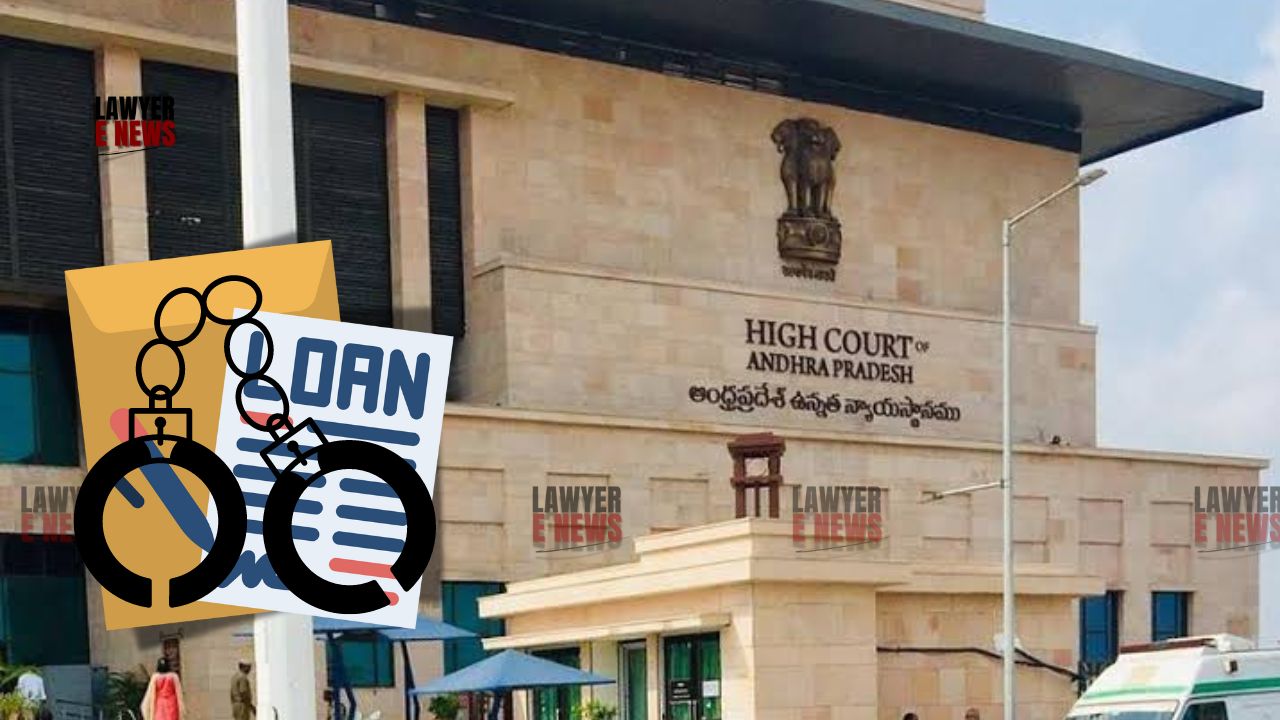-
by Admin
15 February 2026 5:35 AM



Andhra Pradesh High Court refuses anticipatory bail to bank manager and co-accused involved in fraudulent loan disbursement case under Sections 420, 409, and 506 IPC. The Andhra Pradesh High Court has dismissed the anticipatory bail application of Bobba Suresh Kumar and another accused in a loan fraud case involving a Union Bank of India branch in Palakollu. Justice T Mallikarjuna Rao emphasized the necessity for custodial interrogation to ensure a comprehensive investigation, given the severity of the allegations.
The case originated from a report filed by the defacto complainant on November 23, 2023. The complainant’s husband had applied for a loan at Union Bank of India in July 2018. Despite submitting all required documents, the loan was not approved at that time. Later, while the complainant’s husband was employed in Kenya, the accused allegedly used his documents to fraudulently secure a loan of ₹30,00,000, which was used for personal purposes without his consent. Upon returning to India in July 2022, the husband discovered the loan when he approached the bank for a different loan. Investigations revealed unauthorized disbursement and transfers to various accounts, including one linked to the second petitioner.
The court noted that the prosecution’s allegations were substantiated by significant documentary evidence. The learned Assistant Public Prosecutor argued against granting bail, citing the grave nature of the offenses and the necessity for custodial interrogation to fill potential gaps in the investigation.
Justice T Mallikarjuna Rao emphasized the importance of custodial interrogation, stating, “The necessity for custodial interrogation of the petitioner is paramount in this case to facilitate a thorough investigation into the accusations. Denying custodial interrogation could result in significant loopholes and gaps in the ongoing investigation, adversely affecting its integrity.”
The court referred to precedents, including the Supreme Court’s ruling in Mahipal v. Rajesh and Rakesh Baban Borhade v. State of Maharashtra, which stressed that anticipatory bail should be granted only under exceptional circumstances. The court observed that the petitioners had not presented sufficient material to counter the prosecution’s claims and that their involvement in the alleged crime necessitated detailed investigation.
Justice Rao remarked, “Anticipatory bail, the extraordinary privilege, should be granted only in exceptional circumstances where the Court is prima facie convinced that the petitioner is enroped in the crime and unlikely to misuse the liberty granted.”
The High Court’s decision to deny anticipatory bail highlights the judiciary’s commitment to ensuring thorough investigations in serious fraud cases. By emphasizing the need for custodial interrogation, the judgment reinforces the legal principles governing anticipatory bail and underscores the importance of comprehensive evidence gathering in maintaining the integrity of the judicial process. This ruling is likely to have significant implications for similar cases, strengthening the framework for addressing complex financial crimes.
Date of Decision: July 26, 2024
Bobba Suresh Kumar, and Others vs. The State Of Andhra Pradesh
